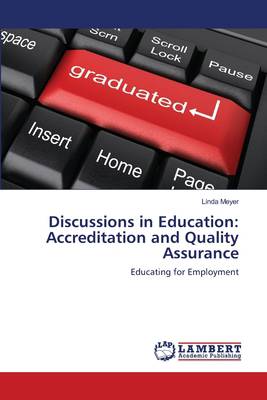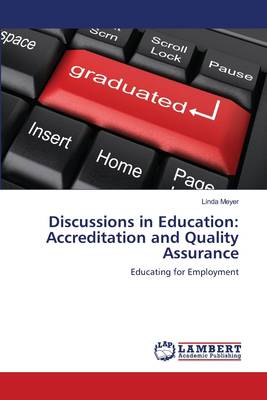
- Afhalen na 1 uur in een winkel met voorraad
- Gratis thuislevering in België vanaf € 30
- Ruim aanbod met 7 miljoen producten
- Afhalen na 1 uur in een winkel met voorraad
- Gratis thuislevering in België vanaf € 30
- Ruim aanbod met 7 miljoen producten
Zoeken
€ 77,95
+ 155 punten
Omschrijving
Developing economies can no longer invest in education that creates systemic unemployment and underemployment for its citizens. Governments answer to addressing unemployment, and in particular youth unemployment, is the institutional massification of student enrolments into higher and further learning. In the absence of graduating with a reasonable prospect of employment, and inadequate resource capitalization of educational institutions, students are structurally disadvantaged in the global economy. The quality of teaching and learning is instrumental in producing skilled graduates that are able to be adsorbed as productive citizens. Globally, accreditation and quality assurance frameworks have been implemented with varying degrees of control and self-regulation. Regulatory frameworks have formed both an enabling and restrictive environment, where limited innovation is evident, and prospects of employment are questionable at best. This study explores global accreditation and quality assurance frameworks, and proposes alternative frameworks in pursuit of education for employment.
Specificaties
Betrokkenen
- Auteur(s):
- Uitgeverij:
Inhoud
- Aantal bladzijden:
- 440
- Taal:
- Engels
Eigenschappen
- Productcode (EAN):
- 9783659139093
- Verschijningsdatum:
- 25/05/2012
- Uitvoering:
- Paperback
- Formaat:
- Trade paperback (VS)
- Afmetingen:
- 152 mm x 229 mm
- Gewicht:
- 639 g

Alleen bij Standaard Boekhandel
+ 155 punten op je klantenkaart van Standaard Boekhandel
Beoordelingen
We publiceren alleen reviews die voldoen aan de voorwaarden voor reviews. Bekijk onze voorwaarden voor reviews.











